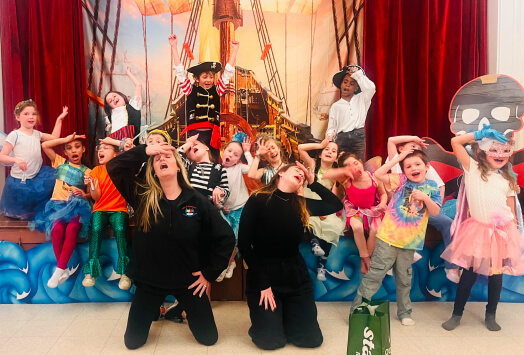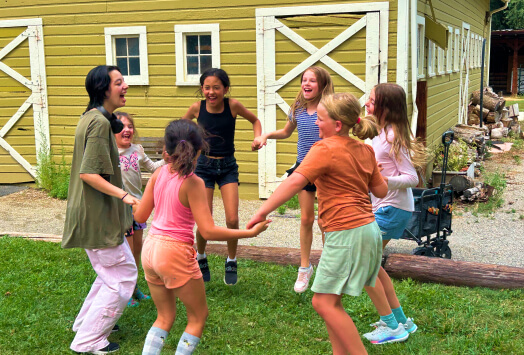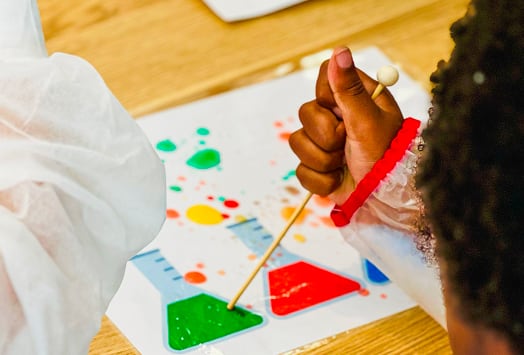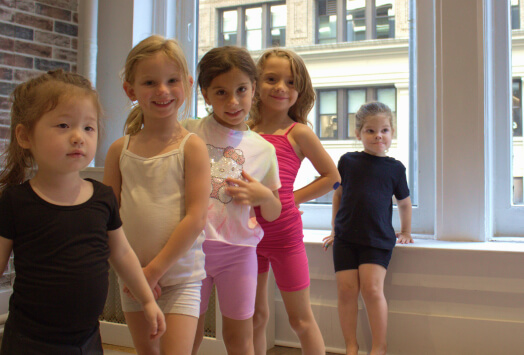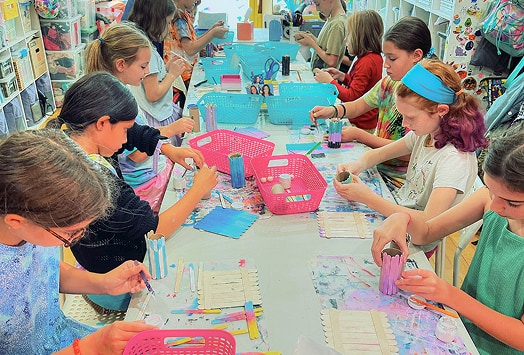At Sawyer we have the privilege of working with hundreds of inspiring educators around the country. Whether they teach virtual classes or in-person activities, the curricula always foster enriching atmospheres for children of all ages to discover their love of learning. We got the opportunity to chat with Genie Arnot, the founder of Social Studio, which offers art classes in Baltimore, to learn more about how she started her business and how Sawyer helps her business grow.
Thank you for taking the time to chat with us! I’d love to hear a bit more about you and why you started your business.
The idea for Social Studio started after a volunteer experience in 2002 at The Children‘s Museum of the Arts in lower Manhattan, a place where all ages could come to create. For the next 20 plus years I dreamed about creating a place like this — I imagine one in every neighborhood! Now that I’ve begun to realize my dream, I am also realizing more and more why it’s so important to have a creative space, a creative process, a creative community — so others can see and share their dreams, ideas and passions. It is through the seeing and sharing that we understand ourselves and others more. That’s my why! Social Studio believes commitment to one's creative process cultivates empathy and connection — the ultimate goals of education and the basis of all innovation and positive cultural change.

Can you describe an inspiring moment you’ve had as an educator?
The most inspiring moments as an educator are when I am a learner. The reciprocal relationship between teaching and learning is essential to the efficacy of either. Recently, I had a guest teacher in the studio teaching ways to develop the relationship between writing and art in your personal work. I was so inspired by her passion, her presentation, and her prompts. The work in the workshop set up its students with a whole year of ways to foster and support their creative practice. She reconnected me with the joy of learning and the value of learning with others.
What’s the most rewarding thing about teaching children?
The most rewarding thing about teaching children is that as they learn their minds and bodies hold onto what they learn and become their knowing, their instincts, their intuition. Our programs teach ages 3 to adult, and now we have been in business long enough that the once three year olds are almost 8 years old! If you create opportunities for a 3 year old to sew, draw, paint, build, then when they are 8 they are building on their ideas, combining their ideas and expanding on their ideas. They want to advance their skills and have an appreciation for the challenge and reward of learning new things so that it becomes a point of improving and innovating rather than frustration and defeat. In the studio, we see kids and adults fall in love with learning and discovery as a creative problem solving process because they are comfortable with their own creative process.
What’s one time a child surprised you and made your day?
Sometimes children bring me cards or drawings that they do outside the studio. One recent Sunday afternoon, one of my students and his mother walked in with a cake that he baked for me! Made my day, made my weekend!

On a similar note, what’s the funniest thing a child has done in your class?
Before reading a story, we have a practice of asking thoughtful questions related to the theme. One such question posed to a group of 5 and 6 year olds was: What’s the biggest waste of time? A kindergartner answered, “The biggest waste of time is dying. Then you can’t do all the things you want to do.” This was not the direction the teacher thought the conversation would go!
Why is after school/extracurricular enrichment and camp so important for children?
After school programming is the perfect combination of social and creative. Programs are often multiage which gives kids a different way to be leaders and learners. The exchange they have with their peers gives them a chance to test their ideas, take different risks, and exhibit skills they have learned in the school setting. They can play, practice, and perform in ways that help them figure out their identity and their passions while also making friends.
How do you think children can discover their passions when they’re not in school or your programs?
Play – when everything works together: collaboration, communication, innovation, expression, and problem solving – is when children discover their passions.












